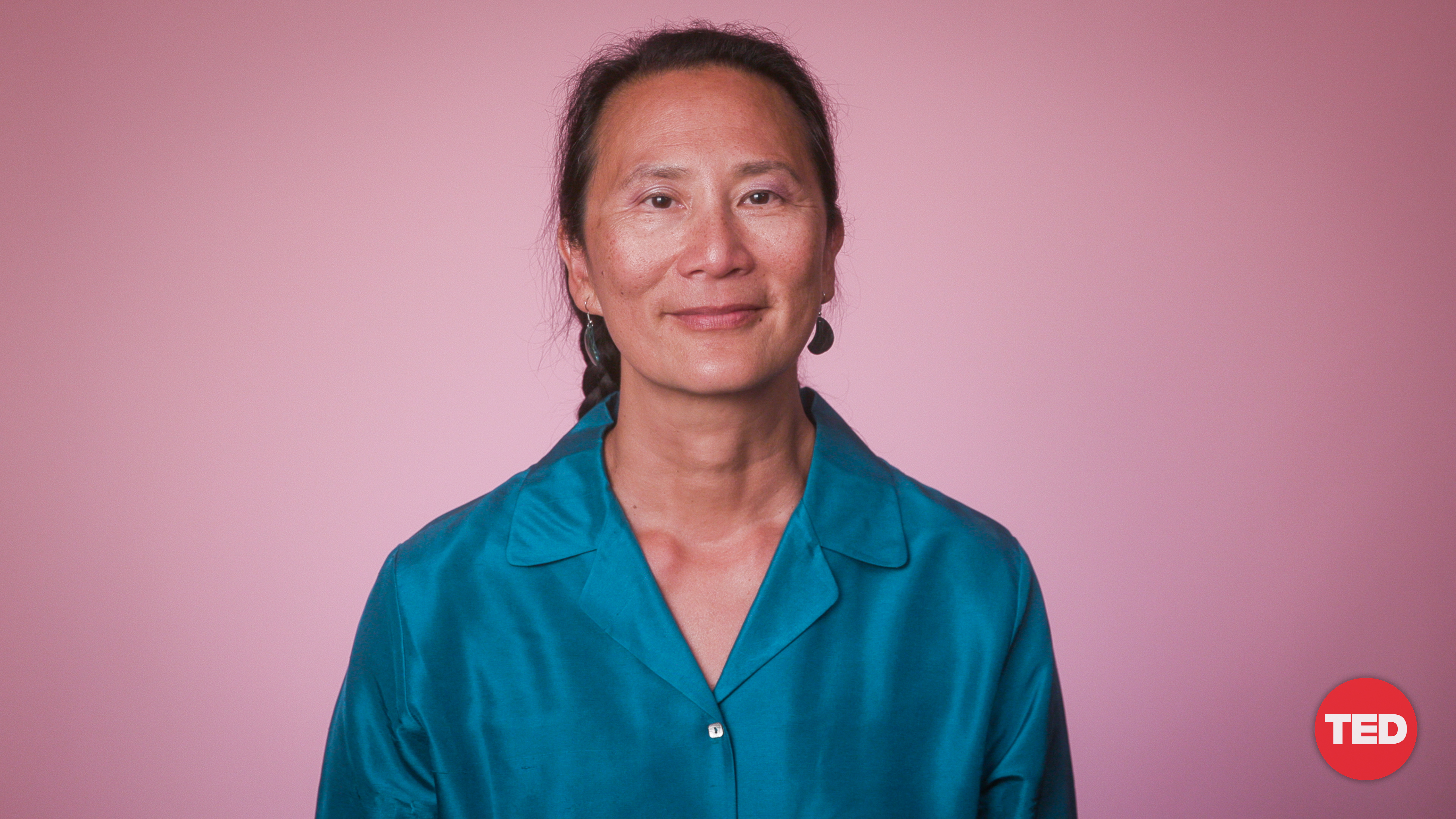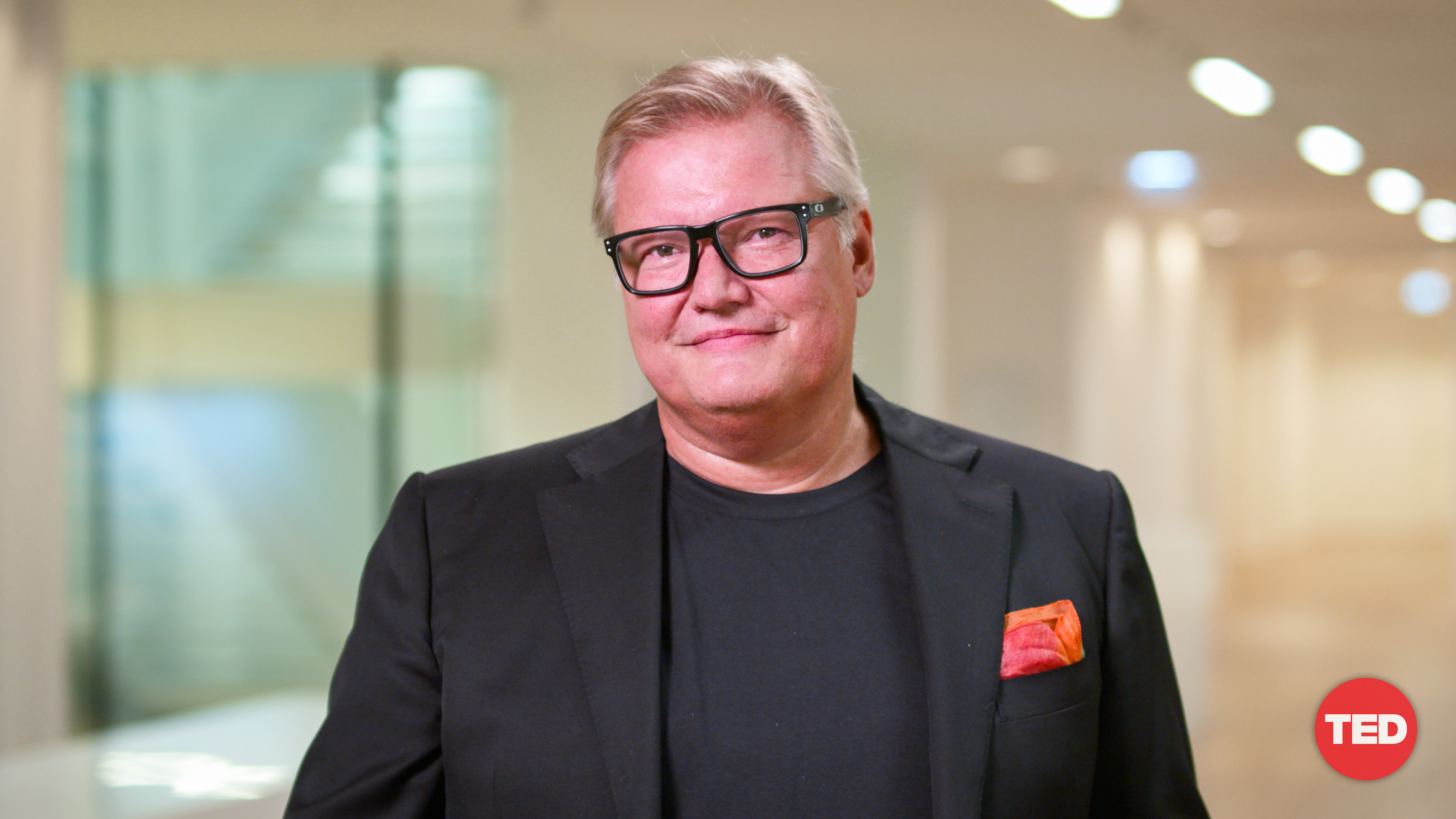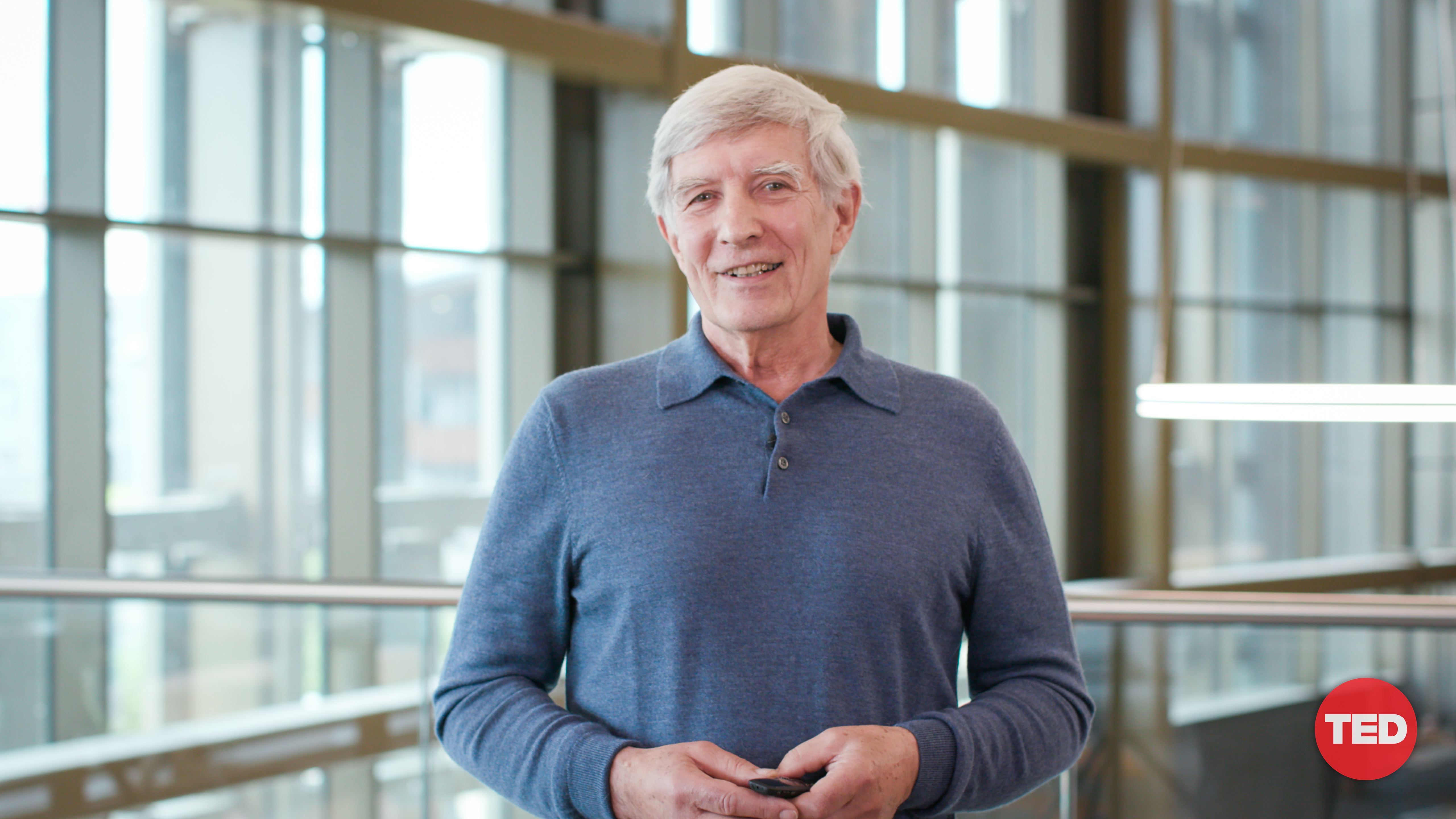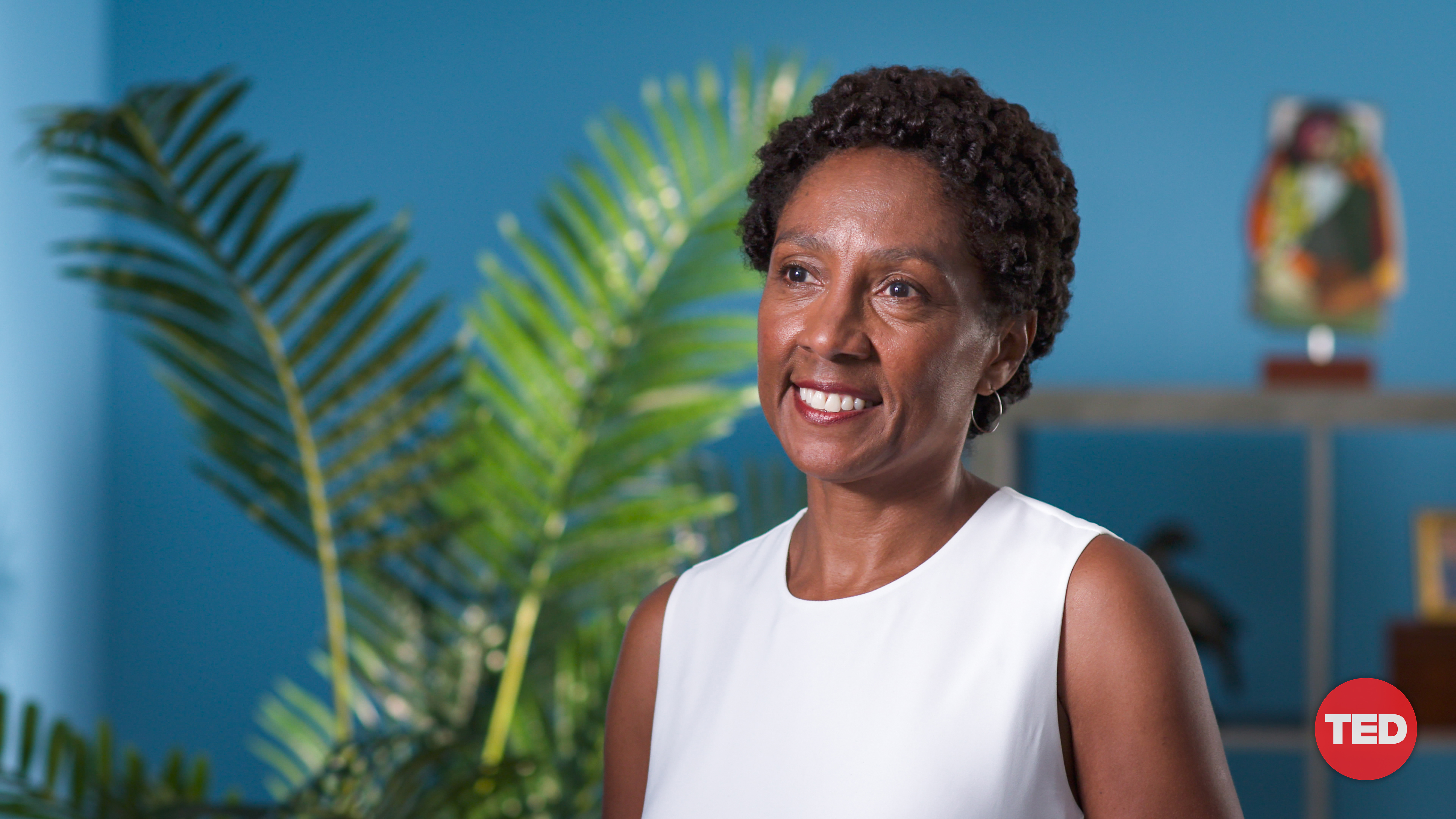Our bodies are where we live, where we dream, how we move and how we survive. They are in so many ways the essence of our existence, but also the map for our future — the challenges and possibilities of our bodies today shaping the world of tomorrow. In an afternoon of talks, four speakers and a performer explore the nexus between our health and well-being through the singular, miraculous lens of our bodies.
The event: TED Salon: Significance, curated and hosted by Sally Kohn, and presented in partnership with Novo Nordisk.

Nancy N. Chen describes how cultural body ideals miss the mark — and offers a new way to view ourselves and our health. She speaks at TED Salon: Significance, presented in partnership with Novo Nordisk, on September 14, 2021. (Photo courtesy of TED)
Nancy N. Chen, medical anthropologist
Big idea: We need to move beyond body ideals — and towards body diversity.
How? Western body ideals that value size-two thinness have warped societal perceptions of health, leading to high rates of eating disorders around the globe. But Nancy N. Chen points out that throughout history, cultural conceptions of bodies have included a much more diverse standard of health and beauty. Ancient civilizations widely viewed full hips and thighs as favorable signs of fertility, and the preference for thinness has only been prevalent for the last century. Chen proposes ways we can decrease body shaming and increase body positivity by making meaningful shifts in who is shown in marketing campaigns and who we look to as cultural heroes. By celebrating body diversity, we can begin to narrow the gap between beauty ideals and our own, lived-in bodies.

Mads Tang-Christensen presents compelling scientific proof that obesity is a disease caused both by environmental factors and individual genetic makeup. He speaks at TED Salon: Significance, presented in partnership with Novo Nordisk, on September 14, 2021. (Photo courtesy of TED)
Mads Tang-Christensen, obesity researcher
Big idea: Obesity is a disease that could potentially be prevented, treated and even cured.
How? The medical community has long viewed obesity as a condition brought about by too much eating and too little exercise. The thinking goes: if you’re overweight, it’s 100 percent your fault — a reproof that can cause shame, self-blame and low self-esteem. Mads Tang-Christensen is here to change that line of thinking. After decades of research, he offers scientific proof that obesity is a disease caused both by environmental factors (such as the overabundance of processed foods) and individual genetic makeup (a single gene mutation can lead to obesity). Specifically, he studies a hormone and signal molecule called GLP-1, which is produced in both the gut and the brain. GLP-1 is how the brain and belly speak to each other, and controls whether or not we want to eat. If you increase levels of GLP-1, the body’s desire to eat or overeat effectively gets turned off. (Think of it as the “full” signal in your car’s gas tank, Tang-Christensen says.) Building off his mapping of the circuity of GLP-1, Tang-Christensen and his team engineered a molecule that can lead to significant weight loss. He believes that these findings, alongside other research into signal molecules and hormones, could help provide a solution for people living with obesity and deepen our understanding of how genes and environment come together to determine body weight.

Kimberose performs a smooth version of “Back on My Feet” at TED Salon: Significance, presented in partnership with Novo Nordisk, on September 14, 2021. (Photo courtesy of TED)
Fronted by vocalist and songwriter Kimberly Kitson-Mills, the French band Kimberose provides a musical interlude featuring a serene, smoldering rendition of “Back on My Feet.”

Richard Wilkinson explains why global levels of anxiety and depression are so high — and the big role inequality plays in driving them upwards. He speaks at TED Salon: Significance, presented in partnership with Novo Nordisk, on September 14, 2021. (Photo courtesy of TED)
Richard Wilkinson, social epidemiologist
Big idea: The root of societal ills like depression, anxiety and other mental health issues grow worse with swelling inequality worldwide.
Why? Inequality is terrible for everyone, even if you’re on the richer side of the economic spectrum, explains Richard Wilkinson. Regardless of where one may fall, the widening gap between the haves and have-nots increasingly stresses our relationships and frays the social fabric. The result, Wilkinson says, is a peculiar isolation borne from material differences, feelings of superiority and inferiority and a misguided emphasis on class and status that can eat away at the self. The more unequal a society, the more likely its citizens are to suffer from mental health issues. Wilkinson believes that fixing this won’t require more therapists, but rather a determined effort to decrease inequality so that we’re able to focus on what’s truly important: the quality of our social relationships, friendships and environments.

“It takes the collective power of a village to create a healthy life,” says epidemiologist Olivia Affuso. She speaks at TED Salon: Significance, presented in partnership with Novo Nordisk, on September 14, 2021. (Photo courtesy of TED)
Olivia Affuso, physical activity epidemiologist
Big idea: Our social environment plays a vital role in our long-term health and well-being.
How? Losing weight is hard — but having a community that supports our collective well-being can make a major difference. With processed food at low prices and limited access to fitness and health care, Olivia Affuso explains how many systems in place hinder quality of life and predispose people to being overweight. While urging us to collectively push our local and national governments to take health seriously, she also shares the most vital ingredient to ensuring our own well-being: a community. “When I work with social, physical activity groups, the members said that friendship, motivation, encouragement and accountability were the most important factors for supporting their long-term physical activity,” Affuso says. By getting active with a group, creating monthly fitness goals and celebrating our successes, we can live healthier lives — together.